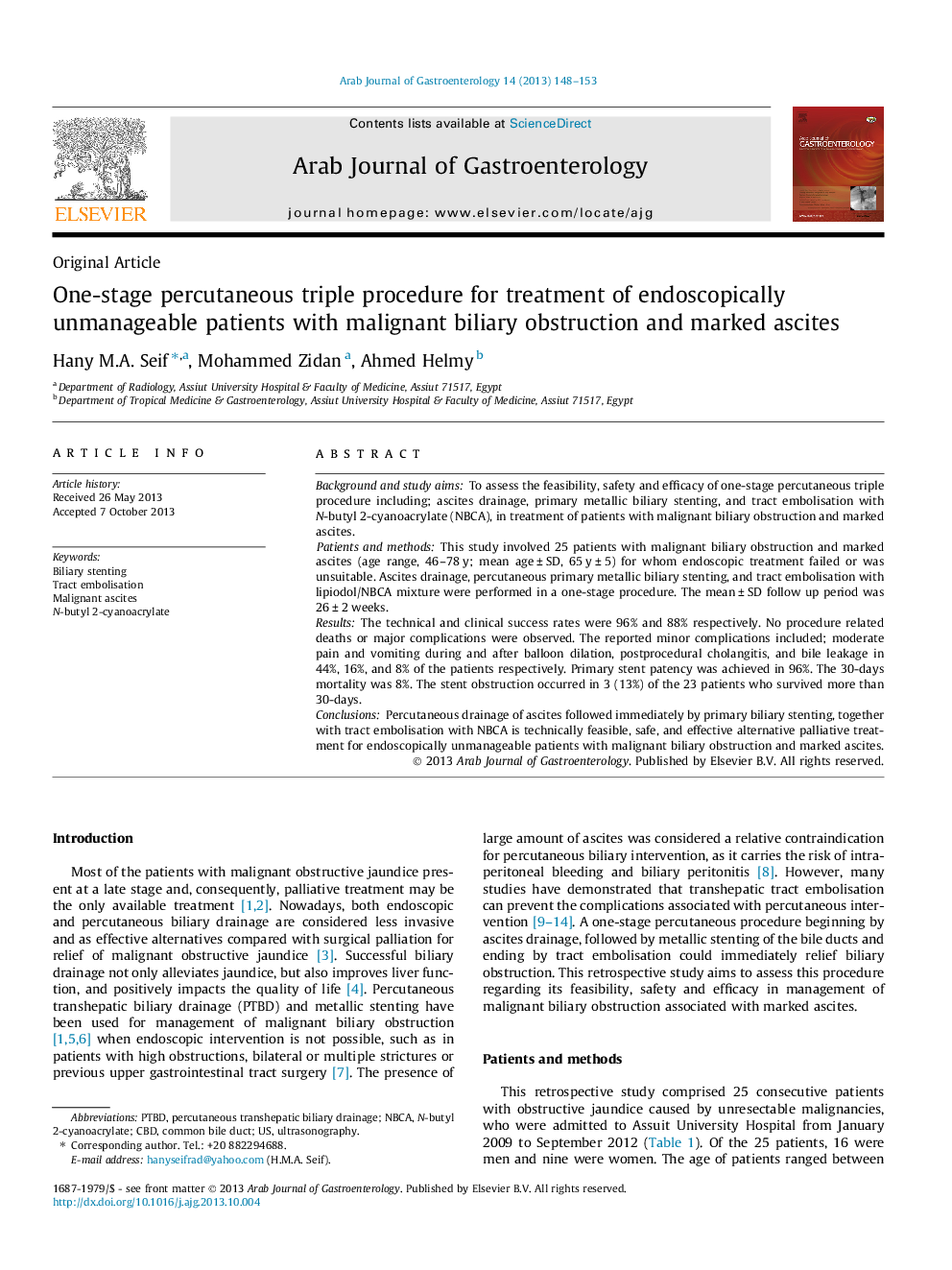| Article ID | Journal | Published Year | Pages | File Type |
|---|---|---|---|---|
| 3280808 | Arab Journal of Gastroenterology | 2013 | 6 Pages |
Background and study aimsTo assess the feasibility, safety and efficacy of one-stage percutaneous triple procedure including; ascites drainage, primary metallic biliary stenting, and tract embolisation with N-butyl 2-cyanoacrylate (NBCA), in treatment of patients with malignant biliary obstruction and marked ascites.Patients and methodsThis study involved 25 patients with malignant biliary obstruction and marked ascites (age range, 46–78 y; mean age ± SD, 65 y ± 5) for whom endoscopic treatment failed or was unsuitable. Ascites drainage, percutaneous primary metallic biliary stenting, and tract embolisation with lipiodol/NBCA mixture were performed in a one-stage procedure. The mean ± SD follow up period was 26 ± 2 weeks.ResultsThe technical and clinical success rates were 96% and 88% respectively. No procedure related deaths or major complications were observed. The reported minor complications included; moderate pain and vomiting during and after balloon dilation, postprocedural cholangitis, and bile leakage in 44%, 16%, and 8% of the patients respectively. Primary stent patency was achieved in 96%. The 30-days mortality was 8%. The stent obstruction occurred in 3 (13%) of the 23 patients who survived more than 30-days.ConclusionsPercutaneous drainage of ascites followed immediately by primary biliary stenting, together with tract embolisation with NBCA is technically feasible, safe, and effective alternative palliative treatment for endoscopically unmanageable patients with malignant biliary obstruction and marked ascites.
